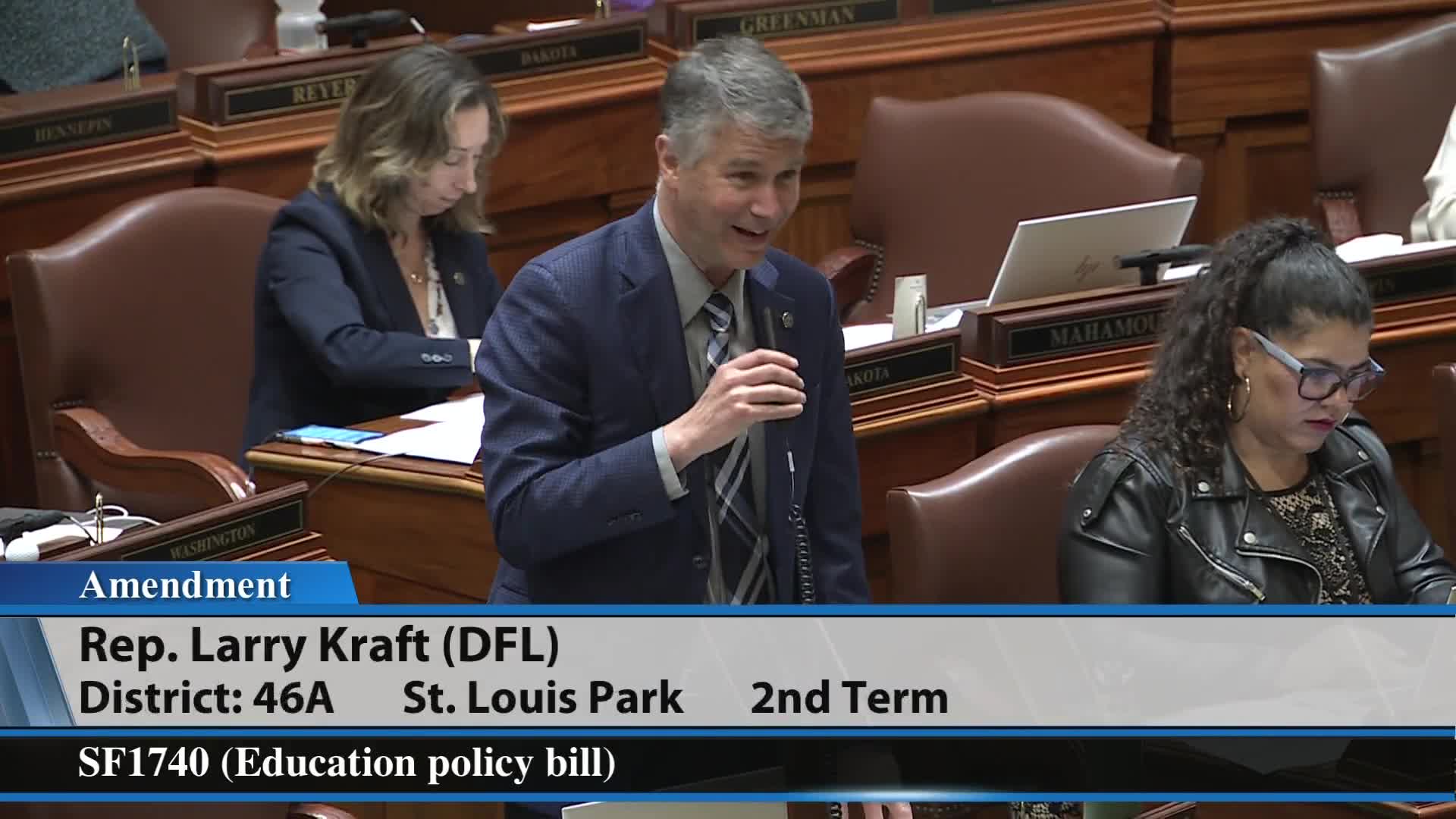Debate Emerges Over Proposed School Amendment's Impact on Student Performance
May 17, 2025 | 2025 Legislature MN, Minnesota
This article was created by AI summarizing key points discussed. AI makes mistakes, so for full details and context, please refer to the video of the full meeting. Please report any errors so we can fix them. Report an error »

In a significant legislative move, the Minnesota House has passed the omnibus education policy bill, SF1740, during a session held on May 16, 2025. This bill aims to address various aspects of the state's education system, reflecting ongoing discussions about educational standards and student performance.
The meeting highlighted a range of opinions regarding the proposed amendments to the bill. One notable moment came when a representative expressed confusion over the rationale behind certain arguments, suggesting that some proposals implied that reducing school attendance could lead to improved student performance. This comment underscores the contentious nature of the discussions surrounding educational policy and the differing perspectives on how best to enhance learning outcomes for students.
The omnibus bill encompasses a variety of educational reforms, including funding allocations, curriculum changes, and measures aimed at improving teacher support. As lawmakers debated the implications of these changes, the focus remained on ensuring that the educational needs of Minnesota's students are met effectively.
In addition to the primary discussions about the bill's provisions, there were also conversations about the potential impacts of these changes on local school districts and communities. Lawmakers emphasized the importance of considering how new policies would affect students and educators on the ground.
As the bill moves forward, it is clear that the discussions within the Minnesota House reflect broader concerns about educational quality and equity. The passage of SF1740 marks a critical step in shaping the future of education in Minnesota, with stakeholders eagerly anticipating how these changes will be implemented and their potential effects on student achievement. The next steps will involve further deliberations in the Senate, where additional amendments and adjustments may be proposed before final approval.
The meeting highlighted a range of opinions regarding the proposed amendments to the bill. One notable moment came when a representative expressed confusion over the rationale behind certain arguments, suggesting that some proposals implied that reducing school attendance could lead to improved student performance. This comment underscores the contentious nature of the discussions surrounding educational policy and the differing perspectives on how best to enhance learning outcomes for students.
The omnibus bill encompasses a variety of educational reforms, including funding allocations, curriculum changes, and measures aimed at improving teacher support. As lawmakers debated the implications of these changes, the focus remained on ensuring that the educational needs of Minnesota's students are met effectively.
In addition to the primary discussions about the bill's provisions, there were also conversations about the potential impacts of these changes on local school districts and communities. Lawmakers emphasized the importance of considering how new policies would affect students and educators on the ground.
As the bill moves forward, it is clear that the discussions within the Minnesota House reflect broader concerns about educational quality and equity. The passage of SF1740 marks a critical step in shaping the future of education in Minnesota, with stakeholders eagerly anticipating how these changes will be implemented and their potential effects on student achievement. The next steps will involve further deliberations in the Senate, where additional amendments and adjustments may be proposed before final approval.
View full meeting
This article is based on a recent meeting—watch the full video and explore the complete transcript for deeper insights into the discussion.
View full meeting
